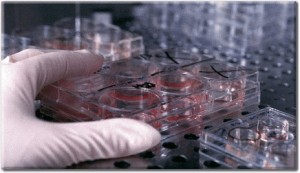 The German Federal Court (Bundesgerichtshof, BGH = the supreme judicial instance in Germany in all matters pertaining to civil law) has yesterday issued the final decision in the case Brüstle vs. Greenpeace.
The German Federal Court (Bundesgerichtshof, BGH = the supreme judicial instance in Germany in all matters pertaining to civil law) has yesterday issued the final decision in the case Brüstle vs. Greenpeace.
Mr. Brüstle is a German researcher who has submitted a patent claim with regard to embryonic stemcells. Greenpeace is an environmentalist NGO that opposes the grant of this patent, arguing that this would be contrary to EU legislation.
The case had acquired worldwide notoriety when the Court of Justice of the European Union, answering a prejudicial question that had been submitted to it by the BGH, found that the existence of a human embryo begins at the moment of conception, and that therefore inventions that involved the use of embryonic stem cells were therefore excluded from patent protection under the EU Biopatent Directive.
This was an important legal victory for the protection of unborn life in Europe. Its importance lies in the fact that for the first time – and with binding effect on all EU Member States – the supreme judiciary instance of the EU has explicitly recognized that human life begins at conception (and not, as Mr. Brüstle would have preferred, at a later stage). It is hoped that the implications of this important decision will gradually be seen in various different contexts.
In its final judgment, the BGH has seemingly made a concession to Mr. Brüstle: it does not generally prohibit the patenting of inventions involving the use of embryonic stem cells, but only the patenting of inventions involving the use of stem cells that have been obtained through the destruction of a human embryo. The reasoning of the Court is that stem cells are not embryos, as they have no potential of developing into a full human being.
Is this just a new hypocrisy? An attempt to circumvent the clear limits that are set by the EU Biopatent Directive? Does this judgment mean that it would now be possible to obtain a patent on any invention that involves the use of embryonic stem cells, as long as there is no mention that the obtention of those stem cells involves the destruction of human embryos?
One thing is clear: there currently is no other way of obtaining human embryonic stem cells, except through the destruction of human embryos. Maybe Mr. Brüstle will now start looking for such a new method. Let’s hope that, in doing so, he will not destroy too many more human beings.



